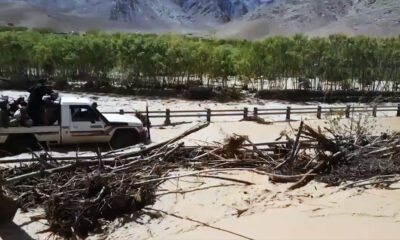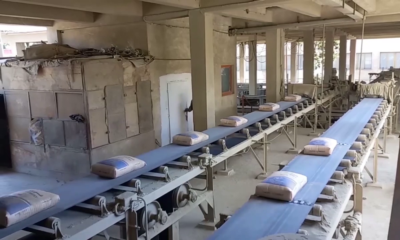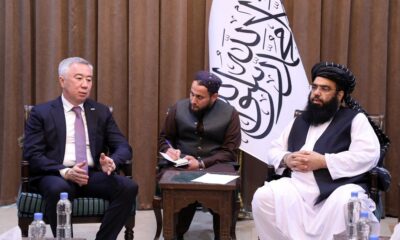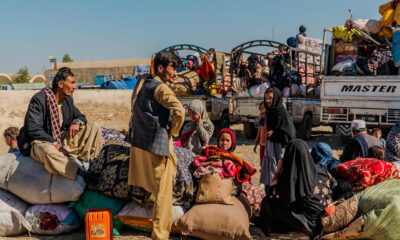Latest News
Thailand to ban recreational cannabis use by year-end, health minister says
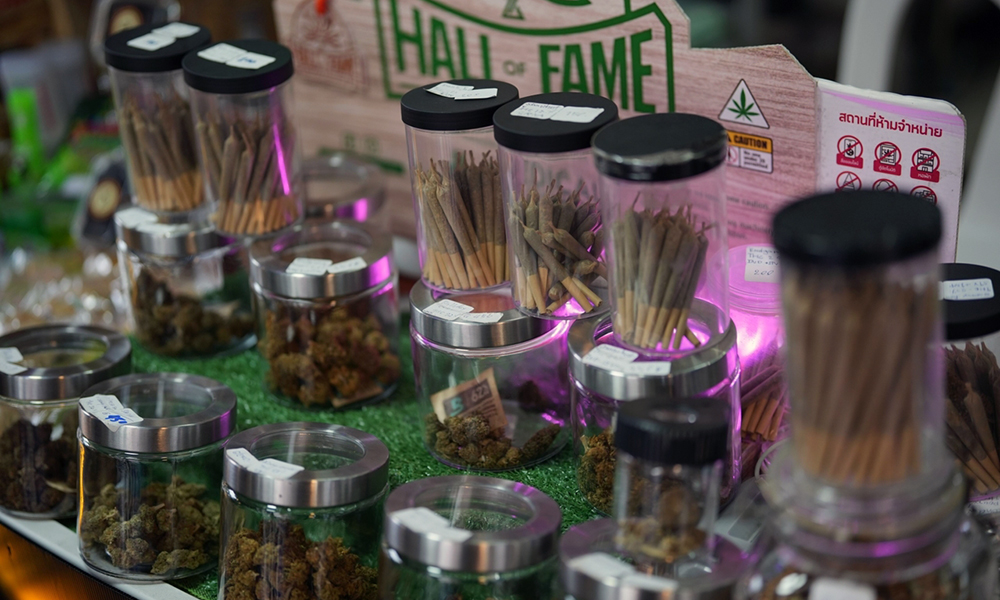
Thailand will ban recreational use of marijuana by the end of this year but continue to allow its use for medical purposes, the health minister told Reuters in an interview.
After Thailand became the first country in Southeast Asia to free up medicinal use in 2018, and then recreational use in 2022, tens of thousands of cannabis shops have sprung up in an industry projected to be worth up to $1.2 billion by next year.
Critics say piecemeal rules were rushed out and adopted within a week of decriminalisation, and the government has drafted a new law to regulate cannabis use that is expected to take effect by year-end, read the report.
The draft bill will go to cabinet for approval next month before heading to parliament to be passed before the end of the year, Health Minister Cholnan Srikaew said.
“Without the law to regulate cannabis it will be misused,” Cholnan said on Wednesday, referring to recreational use.
“The misuse of cannabis has a negative impact on Thai children,” he added. “In the long run it could lead to other drugs.”
The previous government had failed to push legislation through parliament before the general election of last May, leaving Thailand without an umbrella law to regulate its use.
Cannabis shops that operate illegally will not be allow to continue, while home-grown cannabis will also be discouraged, added Cholnan, who put the number of legally registered shops at 20,000.
“In the new law, cannabis will be a controlled plant, so growing it would require permission,” he said. “We will support (cannabis cultivation) for the medical and health industry.”
The draft law specifies a fine of up to 60,000 baht ($1,700) for recreational use, while those selling cannabis for such use and participating in advertisement or marketing of buds, resin, extract or smoking devices face jail terms of up to a year, or a fine of up to 100,000 baht ($2,800) or both.
It also toughens punishment for cannabis farming without a licence, with jail terms ranging from one to three years and fines from 20,000 baht ($560) to 300,000 baht ($8,000).
Import, export, cultivation and commercial use of cannabis will also require permits now, the minister added.
The government, recognising the economic benefit of the cannabis industry, would give businesses time to adjust to the new regulation, Cholnan said.
Such shops could operate until their licences expire and convert to legal cannabis clinics if they follow the new rules, Cholnan said, adding that the new regulation would have no impact on tourism.
Latest News
Eight dead in rain across Afghanistan over past four days

Mullah Janan Saiq, the spokesperson of the Ministry of Natural Disasters, says that eight people have died, three people have been injured and 20 hectares of agricultural land have been destroyed as a result of the rains and floods in the past four days.
Saiq also said that as a result of the recent rains in the country, 140 houses were damaged or destroyed and 20 kilometers of roads were also destroyed across the country.
According to him, 30 cows were also lost.
“Fortunately, as a result of the recent rains, the water level in the country has increased, the underground water has been strengthened and the farmers are happy,”
he said.
According to him, the Ministry of Natural Disasters has directed its directorates in the provinces to use all their facilities to help the victims.
Latest News
Ghori State Cement in Baghlan increases production
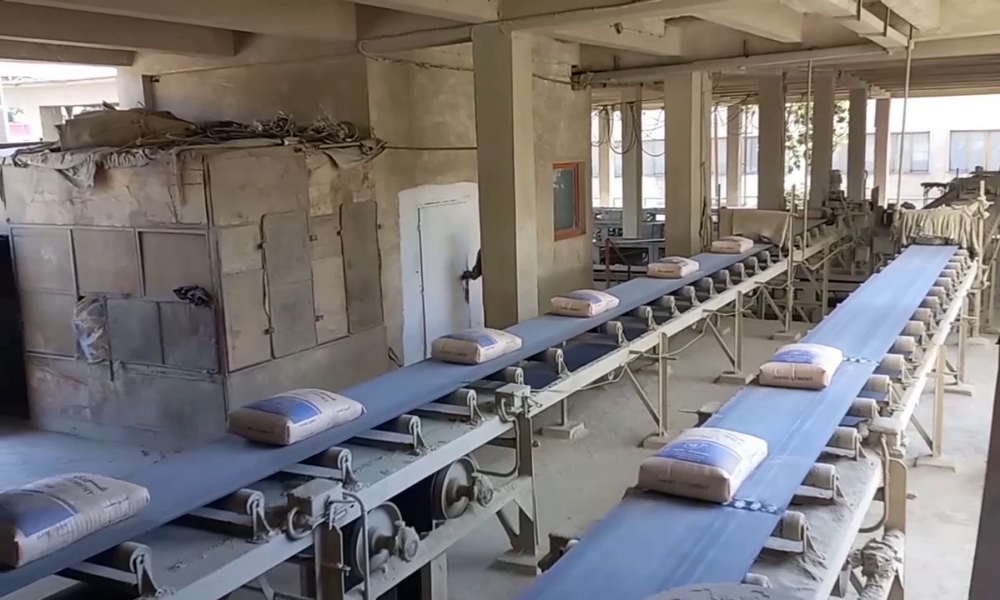
Officials at Ghori State Cement in Baghlan province say the amount of cement produced at this plant has increased compared to the past.
According to company officials, 150,000 tons of cement was produced in 1402 [solar year] and they are trying to increase the amount to 180,000 tons this year.
“Last year, we successfully produced 150,000 tons of cement and sold it to the market. Fortunately, in 1402, we had more than 200 million afghanis in revenue,” said Abdul Wakil Qayumi, financial and administrative deputy of the company.
The plant officials stated that efforts are underway to increase the production capacity, and with the increase of the production capacity, they will produce 1000 bags of cement per day.
“Currently, our four ovens are active, and we produce approximately 1,000 to 1,200 tons of cement in twenty-four hours,” said Mohammad Tahir, packaging manager for the company.
In this company, jobs are created for 750 individuals, and some workers have asked the traders to invest in the country and provide work for young people.
“Some more factories should be built in our country so that less foreign cement is imported into the country and we use our own products,” said one of the company workers.
Ghori Baghlan Cement Company was established about 40 years ago and is considered one of the largest cement production companies in Afghanistan.
The management of this company is carried out by the National Development Corporation (NDC).
Latest News
Regional countries should jointly expand stability and development: Deputy PM
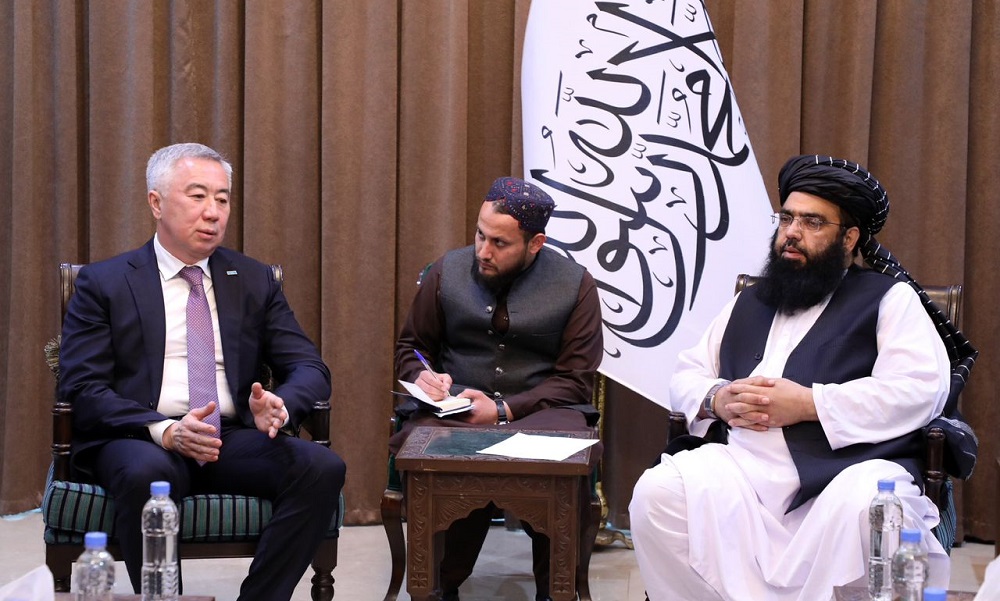
Mawlawi Abdul Kabir, Political Deputy Prime Minister, has said in a meeting with the Deputy Prime Minister of Kazakhstan in Kabul that regional countries should play their role in the implementation of large regional projects.
Kabir also invited Kazakh businessmen to invest in Afghanistan, his office said in a statement.
He added that the Islamic Emirate fully controls Afghanistan’s borders, has eliminated drugs and corruption, and restored national sovereignty.
According to the statement, Deputy Prime Minister of Kazakhstan Serik Zhumangarin appreciated the progress made by the Islamic Emirate in Afghanistan and said that his country is ready for long-term trade, transit and investment relations with Afghanistan.
Zhumangarin expressed his country’s readiness to grant scholarships to Afghan youth and added that Afghanistan is currently an example of a peaceful country in the region, and due to this, the world wants to establish relations with the Islamic Emirate in various fields.
He also called for the start of direct flights between Kabul and Almaty and said that his country is ready for bilateral cooperation with the Afghan government in the cultural field.
-

 Latest News5 days ago
Latest News5 days agoOver 1,000 Afghan refugees forced out of Pakistan in one day
-

 Sport3 days ago
Sport3 days agoAfghanistan beat Iraq 5-3, inch closer to Futsal World Cup berth
-

 Regional3 days ago
Regional3 days agoNew UK sanctions target Iranian drone industry
-

 Regional4 days ago
Regional4 days agoTurkey accuses U.S. of double standards over Gaza in rights report
-

 Latest News3 days ago
Latest News3 days agoEU allocates 17 million euros to support Afghans on the move
-

 Latest News2 days ago
Latest News2 days agoPakistan extends registered Afghan refugees’ stay till June 30
-

 World4 days ago
World4 days agoUS student protests over Gaza intensify despite arrests
-

 Regional2 days ago
Regional2 days agoChina to host Hamas, Fatah for Palestinian unity talks


